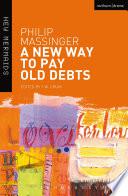“He that would govern others, first should be the master of himself.”
The Bondman (1623), Act I, scene iii http://books.google.com/books?id=K0cNAQAAMAAJ&q=%22He+that+would+govern+others+first+should+be+the+master+of+himself%22&pg=PA193#v=onepage.
Philip Massinger was an English dramatist. His finely plotted plays, including A New Way to Pay Old Debts, The City Madam and The Roman Actor, are noted for their satire and realism, and their political and social themes. Wikipedia

“He that would govern others, first should be the master of himself.”
The Bondman (1623), Act I, scene iii http://books.google.com/books?id=K0cNAQAAMAAJ&q=%22He+that+would+govern+others+first+should+be+the+master+of+himself%22&pg=PA193#v=onepage.
“The good needs fear no law,
It is his safety and the bad man's awe.”
The Old Law (c. 1615–18; printed 1656), with Thomas Middleton and William Rowley.
“This many-headed monster,
The giddy multitude.”
The Roman Actor (1626), Act iii. Sc. 2. Compare: "Many-headed multitude", Sir Philip Sidney, Defence of Poesy, Book ii; "Many-headed multitude", William Shakespeare, Coriolanus, act ii, scene 3; "This many-headed monster, Multitude", Daniel, History of the Civil War, book ii, st. 13.
Virgin Martyr (1622), Act IV, scene i.
“The oath in any way or form you please,
I stand resolv'd to take it.”
Duke of Milan (1623), Act I, scene iii.
A New Way to Pay Old Debts (1625), act i. sc. 3. See X me no X's.
A New Way to pay Old Debts (1625), Act v. Sc. 1. Compare: "From thousands of our undone widows / One may derive some wit", Thomas Middleton, A Trick to catch the Old One (1605), Act i, Scene 2.
Duke of Milan (1623), Act I, scene iii.
“Virtue, if not in action, is a vice,
And, when we move not forward, we go backward.”
The Maid of Honour (c. 1621; printed 1632), Act I, scene i.
“What a sea
Of melting ice I walk on!”
The Maid of Honour (c. 1621; printed 1632), Act III, scene iii.
“Death hath a thousand doors to let out life.”
A Very Woman (1619), Act v. Sc. 4. Compare: "Death hath so many doors to let out life", Beaumont and Fletcher, The Custom of the Country, act ii. sc. 2; "The thousand doors that lead to death", Sir Thomas Browne, Religio Medici, part i, sect. xliv.
The Bondman (1623), Act IV, scene iii.
Great Duke of Florence (1627), Act I, scene 1.
The Maid of Honour (c. 1621; printed 1632), Act IV, scene iii.
“Like a rough orator, that brings more truth
Than rhetoric, to make good his accusation.”
Great Duke of Florence (1627).
